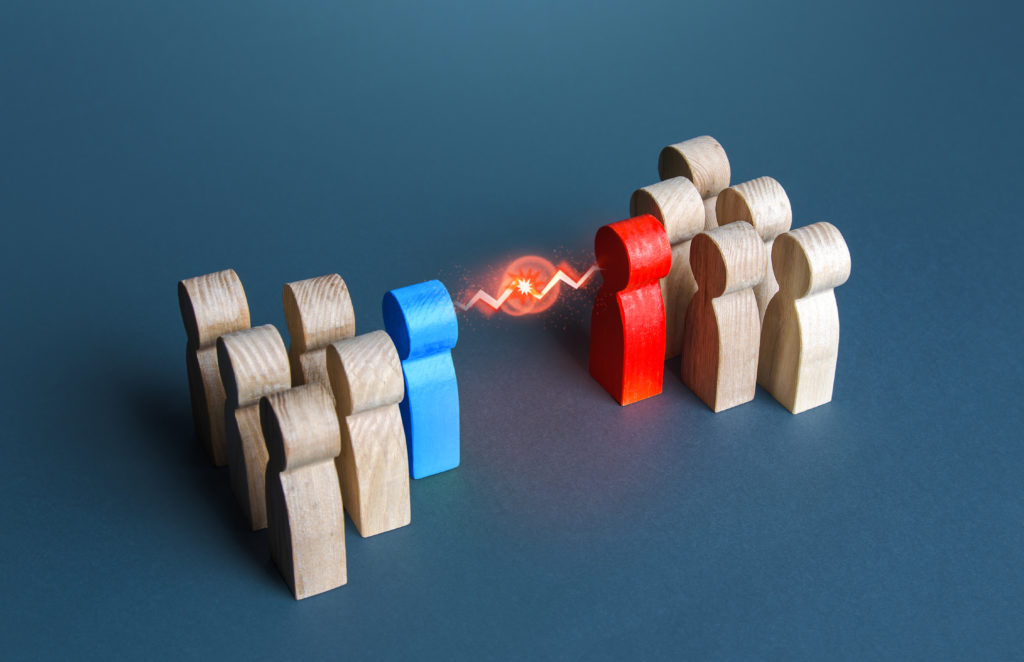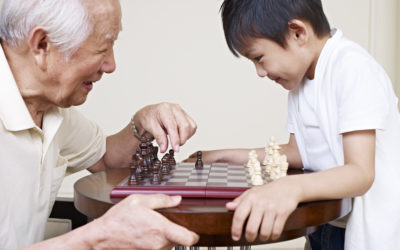Quick Hits
Daily brief research updates from the cognitive sciences

Us vs. them is known as in-groups vs. out-groups in psychology. This is the well-known effect of people being loyal to their own groups and being competitive and often aggressive to the out-group. This happens in multiple groups. Obvious ones are nationalities, religious groups, sports teams, but also geographical regions.
Previous research has shown that we human beings are very good at creating groups and this can be formed very quickly. We also know that these groups, at extreme levels, can be the cause of much of what we consider evil in society, aggression, abuse, murder, torture, and genocide. What may also be surprising, to some, is that all evidence points to this being hardwired i.e. babies as young as 3-months-old exhibit favouritism to in-groups and out-groups and this includes punishing the out-group and rewarding the in-group!
Now researchers at the Virginia Commonwealth University have investigated this effect further and come to some surprising, to some, conclusions!
What did they find?
They put 35 male college students through online competitive aggressive tasks. For this they told they would be competing with participants from a rival university. In fact, they competed against a computer – for ethical reasons. They had their brains scanned while doing these tasks.
What they found that was surprising is that those who were more aggressive against out-group members had greater activation of reward circuits in the brain suggesting that this is driven be reward rather than anger or other mechanisms. Specifically, the nucleus accumbens and ventromedial prefrontal cortex.
This reward circuitry was also associated with the mount they excluded the out-group from other activities. Though this has been measured in other contexts and the research points to this rewarding experience the researchers were most surprised by the strength of the effect in what is a “weak” out-group. A rival university is, in the big scale of things, not a very strong out-group such as the ones that are constructed in a divisive political atmosphere or on the global stage.
So sad to say that reward for punishing others seems to drive, to a large extent, in- and out-grouping and harming others. Fortunately, we now know this and fortunately not everybody exhibits this to excessive degrees●

Andy Habermacher
Andy is author of leading brains Review, Neuroleadership, and multiple other books. He has been intensively involved in writing and research into neuroleadership and is considered one of Europe’s leading experts. He is also a well-known public speaker speaking on the brain and human behaviour.
Andy is also a masters athlete (middle distance running) and competes regularly at international competitions (and holds a few national records in his age category).
Reference
Emily Lasko, Abigale C Dagher, Samuel James West, David Chester.
Neural Mechanisms of Intergroup Exclusion and Retaliatory Aggression.
Social Neuroscience, 2022
More Quick Hits
Petting (Real) Dogs Activates the Social Brain
There have been lots of studies into the positive impacts of having pets around us – but this study just published looked at brain activation patterns while being with a dog, petting a dog, and…
Metabolism Predicts Brain Health
Understanding the link between dementia, brain health, and various metabolic disorders such as obesity is important and gives us important clues in…
Super Agers Have Super Neurons
SuperAgers are those who live long, over 80, but retain their cognitive functions including a healthy functioning memory and seem to avoid neurodegenerative disorders such as Alzheimer’s…
How Nature Lowers Stress in Your Brain
Nature is overwhelmingly good for wellbeing but there are many chicken-or-egg problems with the research. This study…
Correcting Others Improves Group Learning
Some interesting and counter-intuitive insights into effective group learning…
Air Pollution In Childhood Changes Brain Structure
Recent research has shown some worrying impacts of pollution on the brain…






